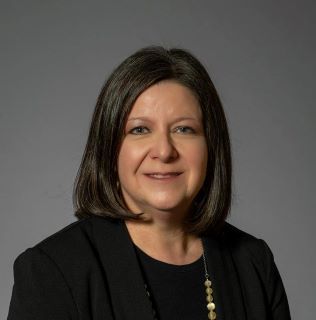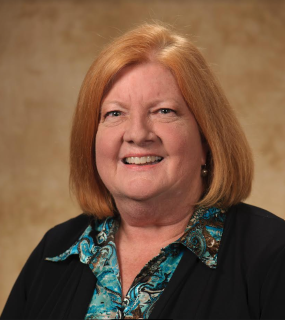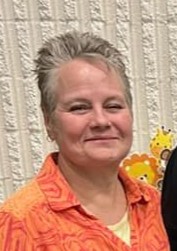-
Bearing Fruit "Along the Way"
 Written by Beliz Kocev, Brazil Coordinator with Iron Rose Sister Ministries
Written by Beliz Kocev, Brazil Coordinator with Iron Rose Sister MinistriesRemain in me, as I also remain in you. No branch can bear fruit by itself; it must remain in the vine. Neither can you bear fruit unless you remain in me. I am the vine; you are the branches. If you remain in me and I in you, you will bear much fruit; apart from me you can do nothing.(Jn 15:4-5 NIV)
When I first became a Christian, I was under the impression that some things were spiritual and others weren't. In other words, I thought that God was involved and interested in some parts of my life, but that there was no room for God in the other areas, and He wasn't interested in them anyway.
My spiritual life seemed to have nothing to do with the rudeness I directed at my mother or the clothes I chose to wear to class. But guess what? It did! And by not involving God in my choices and actions, I wasn't bearing fruit as I could have been. I was a branch that thought it could connect and disconnect from the vine as it pleased. In other words, I was a branch about to die at any moment.
...so that you may live a life worthy of the Lord and please him in every way: bearing fruit in every good work, growing in the knowledge of God.(Col 1:10)
It was only when I understood that everything is spiritual, and that God must be involved in all areas of my life, that I was able to begin bearing fruit along the way wherever I went. God is interested in everything that is part of who I am, from big decisions like where to live, what profession to choose, how to spend my salary, to things that seem small: how I treat strangers, how I react to unexpected situations...
And in each of these scenarios, there is an opportunity to please God in everything, bearing fruit along the way.
A plant that is not healthy cannot bear fruit. A branch that does not receive nutrients from the tree dies. We, as branches connected to the true Vine, being nourished by the Word, are renewed, and we grow. And it is impossible to have the presence of God through the Holy Spirit without change. The conversion of our hearts produces the transformation of our actions and words as fruit: "Produce fruit in keeping with repentance" (Mt 3:8).
The fruit of our repentance is a powerful testimony that leads to one of the most incredible parts of bearing fruit—multiplication. “Therefore go and make disciples of all nations, baptizing them in the name of the Father and of the Son and of the Holy Spirit” (Mt 28:19).
I want to encourage you to remember that everything is spiritual, to nourish yourself with the Word, and to reflect on the impact your actions have on the people around you (whatever they may be and in any environment)! I want to encourage you to bear fruit along the way, wherever you go—so that the fruit of the transformation of your heart will be seen and heard by everyone. And may God's will always guide your choices.
May we be “like a tree planted by streams of water, which yields its fruit in season and whose leaf does not wither” (Ps 1:3).
-
Becoming a Woman After God’s Own Heart
 Written by Anessa Westbrook, volunteer with Iron Rose Sister Ministries in Arkansas
Written by Anessa Westbrook, volunteer with Iron Rose Sister Ministries in ArkansasWhen we read about heroes in the Old Testament, their example seems so unattainable: Abraham, Moses, David, Ruth, Esther, and Deborah. David. His relationship with God was enviable. In 1 Samuel God rejects Israel’s first king, Saul. Because Saul had not followed God’s commands, his kingdom would not endure. In 1 Samuel 13:14 it says that “the Lord has sought out a man after his own heart and appointed him ruler of his people” (NIV). I always assumed that being someone labeled “after God’s own heart” was only attainable for the biblical heroes of old. It wasn’t something that we could, or perhaps even should, consider. While it was obvious that a person after God’s own heart kept His commands, I felt that was not enough to really know what was meant by that statement. The Bible is filled with people who had followed His commands, but only David was given this label. I still remember the day that I bumped into Acts 13:22. This passage seemed to give definition to what I was struggling to understand. David was a man after God’s own heart because “he will do everything I want him to do.” While this was still a high task, and perhaps impossible, was there a chance for a regular person to have God think about them in the same way?
The New Testament shows examples of people living their everyday lives in a faithful way, and God using them in a special way at a specific time. Stephen, for example, was one of the seven men selected to help with the distribution of food to the widows. In Acts 6:5, he is described as “a man full of faith and of the Holy Spirit.” He worked day-by-day to support and encourage the early church, but God was also using him evangelistically (Ac 6:8). Stephen was someone whose character was shaped daily, and who God used to share the Good News and glorify Him in the difficult position of becoming the first martyr. Another example is that of Tabitha who Acts 9:36 says was “always doing good and helping the poor.” When she died, the widows mourned and showed Peter all she had done for them. Peter raised her from the dead and this act became a spiritual testimony to the people of Joppa (Ac 9:41-42).
However, the Bible does not just provide positive examples for us to learn from. David’s story becomes complicated because of some major spiritual missteps. Instead of accompanying his troops off at war, he was at home in his palace and became interested in a young woman who was bathing on the rooftop. After she became pregnant, he tried to hide the sin ultimately resorting to the murder of her husband (2Sa 11). Someone who both cheated on their spouse and then had their lover’s spouse killed would likely make the news today. How could God use such a person? The genealogy of Jesus in Matthew 1 adds an interesting twist to this story because it has three women whose stories would likely raise eyebrows even today: Tamar, Rahab, and Bathsheba. Why would the storyline of the Savior contain such imperfect people? Perhaps we are seeing a side of God that we have seen since the very beginning of the Old Testament: God as Creator.
One of God’s specialties is taking something that is messy and making something beautiful out of it. The inclusion of these people in the line of Jesus raises another important question: what if they had said “no” to God? What if they had felt too imperfect to be included in His plan or had not tried to make the changes needed to become faithful? In Psalm 51 we see David’s heart after he was confronted by Nathan. He did not justify his actions but recognized his sin. He begged God to cleanse him. David made the changes necessary in his life to become Israel’s most respected king and the father of the line that would lead to the Savior. The examples of those who strove to live a daily life that pleased God, as well as those who made the changes necessary to live a faithful life, invite us to reflect on being a woman after God’s own heart.
What is it that is keeping us from saying “yes” to God’s invitation to partner with Him in the kingdom?
-
Betrayal in Relationships: Jesus and Judas vs. Peter
Written by Marbella Parra, volunteer with Iron Rose Sister Ministries in Honduras

God created us as social beings with a need to relate to other people. We mostly enjoy sharing special moments of our lives with others. In the journey of our life, we meet people—and some of them stay with us. We develop friendships, and we support each other in happy moments as well as in difficult times. We call these people friends.
Proverbs 17:17 says, “A friend loves at all times, and a brother is born for a time of adversity” (NIV). On this path of relationships, situations can arise in which we are disloyal to that person who has trusted us. Yes, we are talking about betrayal—a pretty strong word, but real. I don’t think that anyone would like to be called traitorous, but the truth is that at some point in our lives we have failed in our relationships, and others have also failed us.
The Bible recounts two quite shocking cases of betrayal that cause us to reflect on our own relationships; they are Judas and Peter, two disciples who had the joy of sharing a close relationship with Jesus. They saw His miracles, walked with Him, ate at the same table, learned from His teachings, and accompanied Him in His ministry. They had a beautiful privilege—to be friends of Jesus. Similarly, we have people who share with us, know us, eat with us, go out with us, and laugh and cry with us. But relationships are always put to the test, and Jesus' relationships with Peter and Judas were no exception.
Let's first talk about Judas. In the gospels, we find few details about Judas, but it is known that he was a follower of Jesus and supported His ministry. It is also known that he had a soft spot for money; so much so that his greed led him to betray Jesus for 30 pieces of silver. Judas faced a very tempting opportunity that made him fall and lose the trust and friendship that Jesus had with him. Tragically, after falling and thinking about what he had done, he did not know how to handle the situation and ended his own life.
Then there is Peter, about whom we have more details in the Bible. He had an energetic and impulsive personality, and something that stands out about him is that he recognized Jesus as the Son of God, always ready to serve and work alongside Him. Peter was strongly involved in Jesus' ministry, but, like Judas, he underwent a test of faithfulness. Although in many moments he expressed his faith and love for Jesus, in a difficult moment when he had to express his beliefs and show loyalty to his Lord, he did not measure up and betrayed Him.
Likewise, our relationships go through moments of testing, and often we betray some. Perhaps we speak ill of our friends to others, turn our backs on them in difficult times, envy their achievements, and damage our long-standing relationships in many other ways. At other times, we are betrayed by others. But this is not the end of the story. As humans, we will fail, but the final test is how we behave after betraying others, including God, and also how we behave when others betray us.
We have 3 examples from which we can learn. The first two show us the importance of repentance when we are the ones who betray someone. Judas teaches us that we can take the “easy path”; he believed that he would solve everything by ending his life, but it would have been better to repent and genuinely change. We can take the easy road, pulling away from that special person, not talking to them anymore, and if we have failed, showing them an attitude of pride, and withdrawing without fighting for that friendship. Peter on the other hand, after making the big mistake of denying Jesus, had great pain in his heart and repented. After his betrayal, he changed his life, asked for forgiveness, and continued to serve his Lord faithfully until his death. Asking for forgiveness is the difficult path; many times it is hard for us to admit that we have failed and reach out to that person, perhaps out of shame, or perhaps out of pride, but in the end, fixing things with that special person that we have offended can redeem an important relationship in our lives.
And last but not least, we have Jesus, an example to meditate on when we are the objects of betrayal. He was a faithful friend who was always willing to forgive. Despite the failures of Judas and Peter, I am sure that He was willing to receive them again and give them another chance. Peter took advantage of this blessing and further strengthened his ties with Jesus; unfortunately, Judas did not. In Jesus, we have a great example of forgiveness when someone special betrays us. Although it hurts to be betrayed and produces enormous sadness, it is worth forgiving and rescuing those relationships that God has placed in our path.
Let us learn from the example of our Lord Jesus who was willing to forgive betrayal, and from Peter who was willing to admit his mistake and change completely for the good of his relationship with our Lord.
I want to invite you today to value all those special relationships that you have or have had. Is there any relationship that you can recover today through repentance or forgiveness?
-
Betrayal… God Can Resurrect Relationships
Written by Corina Diaz, volunteer with Iron Rose Sister Ministries in Argentina

It has happened to all of us: we have high expectations about a relationship with something or someone, and then we realize that the reality is completely different than what we expected.
Even Jesus, when realizing that He would be betrayed, kept in His heart the desire to pass that cup. “After he had said this, Jesus was troubled in spirit and testified, ‘Very truly I tell you, one of you is going to betray me’”(John 13:21 NIV).
Jesus knew that it was not Judas himself who initiated the betrayal, but He recognized that sinful action stems from an external influence. “Then Satan entered Judas, called Iscariot, one of the Twelve”(Luke 22:3). “As soon as Judas took the bread, Satan entered into him”(John 13:27a). It is very important to recognize that Satan is actively working to bring about betrayal in our relationships.
Dealing with these situations on a personal level can cause us anguish, and will affect how we deal with the reality of what has happened.
Jesus' outline was simple—only three steps:
- Accept the situation.
- Pray to the Father to process the feelings.
- Keep the heart open to give love.
It seems quite simple—and I assure you that it is not—but I also assure you that lowering expectations and accepting what comes, while cultivating a pure heart will make the path more bearable!
-
Bible Women Who Did What They Could
 Written byDeanna Brooks, volunteer for Iron Rose Sisters Ministries in Arkansas
Written byDeanna Brooks, volunteer for Iron Rose Sisters Ministries in ArkansasIn Mark 14 (ESV) while Jesus was eating with Simon the leper, a woman came and anointed Him with pure nard, a costly ointment. When she was criticized, Jesus replied in verse 8: “She has done what she could.”
What a beautiful acknowledgment of the gift this unnamed woman gave from her heart.
Throughout Scripture, we are told about others who “have done what they could,” even though that exact statement isn’t used to describe their actions.
Noah’s wife… have you thought about the role she played in encouraging Noah as he followed God’s instructions to build the ark? We are told nothing about her except that she is referred to as “Noah’s wife (Ge 6:18, 7:7, 7:13, 8:16, 8:18), and we know she was faithful.
In Exodus, 2 Jochebed protected her infant son when she prepared a waterproof basket and placed him into the Nile River. Then she left her young daughter, Miriam, to watch. The cruel Pharaoh wanted to destroy all the male Hebrew babies, and Jochebed’s heart must have been heavy as she placed her baby boy into the Nile, not knowing what would happen, but trusting God. God was working, and when Pharaoh’s daughter found him, Miriam offered to find someone to nurse the baby… and that person was the baby’s mother. Jochebed was able to have those early years with her son.
In Joshua 2, Rahab is described as a prostitute, but when the spies came, she realized they served a God greater than the Canaanite gods she had known and protected them by hiding them under the flax drying on the roof.
In 1 Samuel 25, Abigail came to David with food for his men, acknowledging that her husband, Nabal, had done wrong in refusing to feed the soldiers. Her generous heart must have caught David’s attention because she became one of his wives after the death of her husband.
The widow of Zarephath (in Sidon) prepared food for Elijah with the last of her provisions, and because of her kindness, her flour and oil never ran out during the famine (1Ki 17:8-16).
Esther became queen and violated protocol by approaching King Xerxes without being called by him after listening to the words of Mordecai, “And who knows whether you have not come to the kingdom for such a time as this?” (Est 4:14). In doing so, she saved her people, and Jews celebrate the Feast of Purim to this day.
The angel Gabriel came to Mary, telling her she would bear a son. Mary’s response to Gabriel in Luke 1:38 was, “Behold, I am the servant of the Lord; let it be to me according to your word.” She was a virgin, but she was willing to be the vessel for something she did not understand.
During Jesus’ ministry there were women who followed Him, and Luke 8:1-3 tells us they provided for Him out of their means.
In Acts 9, we read of Dorcas who used her needle and fabric to make clothing for widows in need.
None of these women did anything “big” that would attract the news media. They did things that were part of their everyday life.
In Exodus 4:2, God asked Moses, “What is that in your hand?” It was a simple shepherd’s staff, but later it would be in Moses’ hand as he stretched it out over the Red Sea and watched the waters part. “Lift up your staff, and stretch out your hand over the sea and divide it, that the people of Israel may go through the sea on dry ground” (Ex 14:16).
These and other examples of faithfulness we see throughout Scripture… of people who used what they had… should encourage us to use our talents.
Paul writes in Col 3:23-24, “Whatever you do, work heartily, as for the Lord and not for men, knowing that from the Lord you will receive the inheritance as your reward. You are serving the Lord Christ.”
When we look at what we are doing in our daily lives, are we doing what we can as though we are doing it for our Lord, Jesus the Christ?
-
Breaking the Generational Cycle
Written by Aileen Bonilla, volunteer with Iron Rose Sister Ministries in Ecuador

Breaking the generational cycle of disobedience is a very big responsibility placed on our shoulders by God. However, He promises to be by our side at all times, and not only this, He also promises to lighten our load because His yoke is easy (Matt. 11:28-30) and His grace is sufficient (2 Cor. 12:9-10).
With this in mind, let me share some thoughts about the generational cycle between Saul and his son Jonathan. The scriptures tell us that God chose Saul to be the first king of Israel. King Saul had serious character flaws, so why would God anoint such a man to rule His people? The answer may not be totally clear to us, but it is evident that God allowed this situation so that His people would realize that no human king could compare to Him, and that absolutely no one could be as good as God Himself.
Saul was an arrogant man. However, the position he had been given was not what made him prideful; it simply exposed what was already in his heart (Prov. 23:7). Being the first king of Israel certainly must have reinforced his pride. This king did not trust God: he made foolish and unwise oaths (1 Sam. 14:24), and he did not comply with God's commandments. This leads us to conclude that he did not fear God. He did not value even the life of his own son (1 Sam. 14:44); however, in spite of this, Jonathan decides in his heart not to be like his father.
The Bible describes Jonathan as a brave, strong man, and a good warrior, but it also describes him as a man of love (1 Sam. 18:1), a loyal friend, and a good son. Above all, he was a young man who feared God and lived to assure that nothing or no one would hinder Jehovah's purposes.
Jonathan knew that the Spirit of God was no longer in his father. Recognizing this truth was very critical, because everything Saul did was subject to his human nature, rather than out of a desire to please God. As a result, it was impossible to trust him. Jonathan decided not to be like his father. To make such a crucial decision, his bond with the Lord must have been very close since God is the only one who can help us break these generational chains.
Any one of us can choose not to follow the same destructive path as our parents if we grew up in a non-Christian family. Asking God to help us break those unfaithful generational cycles will bring light not only to our current family, but will also build future generations of believers, and God will pour out His blessings on all of them. It all begins with creating a close relationship with God. Then He will show us what sinful attitudes we have inherited from our unbelieving ancestors which will enable us to break the generational cycle and be transformed into faithful followers.
This is also a way of fulfilling the command of Jesus when He says, “If anyone comes to me and does not hate father and mother, wife and children, brothers and sisters—yes, even their own life—such a person cannot be my disciple”(Luke 14:26 NIV). Jonathan was not willing to sacrifice obedience to Jehovah for the unholy whims of his father. Many times, without realizing it, we carry bitterness in our hearts, because our parents were also bitter. We downplay the importance of church involvement because we do not believe that God requires this, and as if that were not enough, at least in Latin America, faithfully congregating every Sunday with the Lord’s church is no longer a priority.
Jonathan was clear about his purpose on this earth—to give glory to God at all times—even to the point of offering his own life so that his best friend David could live, assuring that the messianic lineage would continue its course until it reached Jesus. In the same way, we must fervently ask that God show His purpose for us so that we can live giving Glory to Him, and above all, accept His grace every day to break family yokes that are not healthy. Building a spiritual life that transcends for many generations depends on our effort and courage, but above all, it depends on the openness and sensitivity of our hearts toward the voice of God.Saul closed his heart to Jehovah; therefore, the Spirit of God left him.
Today, I first encourage you to pray and ask God to show you His purpose for your life. Second, ask Him to help you live for this purpose and, in this way, He will break every chain that ties you to the past.
-
Broader Hospitality
 Written by Rianna Elmshaeuser, volunteer with Iron Rose Sister Ministries in Colorado
Written by Rianna Elmshaeuser, volunteer with Iron Rose Sister Ministries in ColoradoShare with the Lord’s people who are in need. Practice hospitality. (Ro 12:13 NIV)
Do not forget to show hospitality to strangers, for by so doing some people have shown hospitality to angels without knowing it. (Heb 13:2)
Offer hospitality to one another without grumbling. (1Pe 4:9)As a child, whenever I thought of hospitality, I would think of having people over for a nice meal, good conversation, and dessert. My parents did this often and I loved sitting and listening to the adults tell stories and laugh with each other. As an adult in a city with absurdly high housing prices, I cannot afford a home large enough to have more than one person over at a time. I do have a large backyard and on nice summer evenings, I can accommodate a larger group, but mostly I’m limited in this form of hospitality.
The good news for me is that there are other forms of hospitality and I think that is what the Bible is conveying more than merely having someone come to your house. Jesus did not have a home to invite people over for dinner either. In fact, he often needed a place to stay for himself and his followers, yet Jesus is the ultimate picture of hospitality. The Greek word used in Romans 12:13 for hospitality means “love of a stranger.” I know many people who open their homes and are excellent hosts for small group meetings, dinners, and game nights. In contrast, you may have been invited to the house of a person in which you did not feel welcome or comfortable. There are many reasons I have felt uncomfortable in a home, including it was so clean I was scared to step off the welcome mat, their spouse sat in their recliner the whole time smoking and playing Tetris (true story), no food or drink was offered, or the conversation was tense and awkward.
It is clear, from these scenarios, merely opening your home to others is not hospitality. Webster’s dictionary defines hospitality as “offering a pleasant or sustaining environment or being readily receptive.” There is much more to being hospitable than I initially thought. I have a friend who makes everyone who enters her home feel loved, safe, and comfortable. Her home is clean but not fancy. She welcomes you with a big smile and usually has it set up so you can help yourself to a snack or drink. There is an indescribable air of warmth and acceptance. A large part of the welcoming feeling in my friend’s home is her personality.
I may not be able to have gatherings at my home, but I can take the feeling of acceptance, warmth, and love with me wherever I go. Jesus had this same quality. For example, when a woman was thrown at his feet by a crowd demanding her brutal death, Jesus got down on her level. When the mob receded and it was just the two of them left, He spoke to her with love and forgiveness. Again, when He met a woman at a well with a long history of sin, He spoke with her, took the time to know her, and offered her more than she could ever dream; the living water of God’s love. Time and again, Jesus greeted the outcasts, degenerates, and poor with respect, love, and a spirit of hospitality. Hospitality is loving strangers like Jesus did; truly seeing them and being hospitable to their person.
Our church buildings are also places where great hospitality can be shown. How shameful if a visitor joins us as we worship God and feels unwelcome or unseen. The gathering of the church should be a place where the lost, hurting, discouraged, and faithful feel safe, feel loved, and feel welcome. In today’s society, Christians have a reputation as judgmental hypocrites. I used to find this offensive, but experience has taught me that this reputation is not wholly unmerited. In my experience, the central focus of too many sermons has been on sin and bringing sinners to repentance. I think a little more hospitality might go a long way towards bringing the lost to Jesus than a fiery sermon. After all, when Jesus spoke to the lost, He had great compassion and mercy. He reserved His harshest sermons for the religious leaders who were oppressing the people with their man-made laws rather than acting justly, loving mercy, and walking humbly with their God (Mic 6:8).
Sisters, let us be committed to showing hospitality, offering a pleasant or sustaining environment or being readily receptive, wherever we go.
-
Building Relationships with our Children and Grandchildren
Written by Brenda Davis, volunteer with Iron Rose Sister Ministries in Arkansas

Be careful, and watch yourselves closely so that you do not forget the things your eyes have seen or let them fade from your heart as long as you live. Teach them to your children and to their children after them. (Deut. 4:9 NIV)
While barely mentioned in the New Testament, two Christian women, Lois and Eunice, were no doubt familiar with this scripture due to their Jewish heritage. It is evident that they practiced this teaching because we read of the influence they had on their grandson/son, Timothy, one of the most impactful missionary preachers in the early church. Here are the only two passages that mention these women:
I am reminded of your sincere faith, which first lived in your grandmother Lois and in your mother Eunice and, I am persuaded, now lives in you also. (2 Tim. 1:5)
Now Paul also came to Derbe and to Lystra. And a disciple was there, named Timothy, the son of a Jewish woman who was a believer, but his father was a Greek, and he was well spoken of by the brothers and sisters who were in Lystra and Iconium. (Acts 16:1)
If only we knew more about the specifics of how they raised Timothy. Did they give him time out when he misbehaved? Did he have a curfew? Did they make him go to church when he didn’t want to? We can be sure that, like us, they were not perfect as grandmother and mother. But we know that despite their imperfections they were successful in raising someone who chose to devote his life to Christ and His church, as we read in 1 Corinthians 4:17.
So, what can we learn from these women? We learn that the relationship between us and our children and grandchildren is incredibly impactful—even essential—to their spiritual upbringing. We also learn that even if our spouse is not a believer, we can still have a relationship that results in blessing these young souls. Acts 16:1-2 tells us that while his father was a Greek unbeliever, Timothy’s mother was still successful in teaching him about Christ.
It is universally agreed that the relationship between a mother and child is important. But there are also multiple verses and examples in the Bible that show us the importance of grandparents and the positive and negative results of this relationship. Whether we live near, or even with, our children or grandchildren, or clear across the country or the world, we are still called to maintain a relationship that will strengthen their relationship with the Lord. Author Mickey Elliott says, “It is the grandparent's responsibility to encourage, love, bring peace and unity. Never speak negatively about either parent to the grandchildren, but always encourage love, forgiveness, unselfishness, and understanding.”
How can we build and maintain these influential relationships?
- By example -living out our faith in words and actions.
But if a widow has children or grandchildren, let them first learn to show godliness to their own household.(1 Tim. 5:4 ESV)
Our children and grandchildren observe how we treat and serve others, how we react to life’s events, and whether or not we are striving to be like Jesus.
- By teaching -sharing God’s Word from day one at every little opportunity.
But as for you, continue in what you have learned and have become convinced of, because you know those from whom you learned it, and how from infancy you have known the Holy Scriptures. (2 Tim. 3:14-15 NIV)
Take advantage of “teachable moments,” sharing Biblical truths in everyday situations. This can be as simple as replacing, “What a beautiful day,” with “What a beautiful day God made for us,” as you look out the window together.
- By praying -unceasingly taking them before the throne of grace.
Do not be anxious about anything, but in every situation, by prayer and petition, with thanksgiving, present your requests to God.(Phil. 4:6-7)
Pray with and for them—their health, their choice of friends, their future spouses, and protection from the tempter.
An unknown writer has said, “Having [kids and] grandkids is a blessing. Helping to shape their lives is an honor,”andScripture supports this statement.I particularly like the Contemporary English Version’s rendition of Psalm 127:4-5, “Having a lot of children to take care of you in your old age is like a warrior with a lot of arrows. The more you have, the better off you will be.” And Proverbs 17:6 (NLT) tells us that “grandchildren are the crowning glory of the aged.”
May we all be mindful of the spiritual legacy we will leave our children and grandchildren.
-
Burdened Relationships
Written by Kat Bittner, volunteer and member of the Board of Iron Rose Sister Ministries in Colorado

“Carry each other’s burdens, and in this way you will fulfill the law of Christ” (Gal. 6:2 NIV).
“A true relationship is two imperfect people refusing to give up on each other” (Unknown). That could not be a more fitting description for us as humans in relationship with each other. Relationships are often hard. They take a great deal of commitment and effort on our part to be even the least bit fulfilling. Our sinful nature, clothed in selfish desire, often keeps us from working on relationships as we should. But like anything else in life that is good, we need to ensure that God is at the forefront of our relationships and that He is the reason we do what we do. “Whatever you do, work at it with all your heart, as working for the Lord, not for men”
(Col. 3:23).
God designed relationship, and He designed it to be a reciprocal effort; each person brings something to the relationship that is equally satisfying. Consequently, the best relationships are enveloped in a common love (1 Cor. 13:4-7). The best relationships build us up rather than tear us down (1 Thes. 5:11). The best relationships are burdened relationships.
Burdened relationships are those that involve mutual dependence on each other. We should be dependent on others (most assuredly our sisters in Christ) for several things. We need each other for guidance as “the heartfelt counsel of a friend is as sweet as perfume and incense,” and “as iron sharpens iron, so a friend sharpens a friend” (Prov. 27:9,17 NLT). We need each other for spiritual restoration for “…sisters, if another believer is overcome by some sin, you who are godly should gently and humbly help that person back onto the right path (Gal. 6:1). We need each other forinstruction on how to live as godly women (Titus 2:3-5).
Perhaps the most important thing we can do for each other as sisters in Christ is to share those things which encumber or afflict us. Sin and the struggles of life can weigh us down with extreme heavyheartedness. The burdensome stuff of life can discourage and weaken our spiritual state. We should never be embarrassed or ashamed to share those things which weigh heavily on our hearts. The adage “there is strength in numbers” is very true, especially when it concerns our spiritual health. The author of Ecclesiastes proclaims that “two are better than one because they have a good reward for their labor…and a threefold cord is not quickly broken” (Eccl. 4:9,12 ASV).
We cannot do life in any capable fashion without strong relationships. We must be willing to share our burdens with our sisters in Christ. In doing so, we afford them the powerful healing that comes from prayer, thereby encouraging them on to a better, stronger faith. “Pray for each other so that you may be healed. The earnest prayer of a righteous person has great power and produces wonderful results” (James 5:16, NLT).
Our burdens need to be shouldered by each other so faith can reach its crowning achievement.Faith is made stronger when our relationships with each other better mimic our relationship with God. When our relationships with each other are more authentic, transparent, and persevering, we can better cope with the heaviness that life brings us and others. Shouldering our burdens with one another is a key element for building good relationships because it also demonstrates selflessness. And we truly live by the tenets of Jesus’ teaching when we humble ourselves enough to selflessly carry the burdens of others (Phil. 2:3, Rom. 13:8; Gal. 5:13; 2 Jn. 1:6). Even more wonderful is that we can have our burdens shouldered by Jesus, too. In fact, He expects it of us. He whose burden is light asks us to burden Himself with our heaviness.“Come to me, all you who are weary and burdened….my yoke is easy, and my burden is light” (Matt. 11:28,30 NIV).
Sisters, we cannot afford to be stagnant or self-righteous in our relationships. Good relationships require effort and perseverance. We must be committed to working selflessly in our relationships if we are to be pleasing to God. Relationships can fuel our faith because they require a refusal to give up on each other just as God refuses to give up on us. God has “chosen you and will not throw you away”(Is. 41:9 NLT). A burdened relationship demonstrates a faithful work. It is a good thing! How will you be burdened by your relationships?
-
Caring for Others: -Expression of Love for God
 Written by Kat Bittner, volunteer and Board member with Iron Rose Sister Ministries
Written by Kat Bittner, volunteer and Board member with Iron Rose Sister MinistriesAnd don’t forget to do good and to share with those in need. These are the sacrifices that please God. (Heb 13:16 NLT)
As a child, I remember playing with the neighborhood children for hours on end. We would wear ourselves out riding bicycles, exploring the woods, playing dodgeball, or just trekking to the convenience store on our military base for snacks and soda. I also remember not one child ever went without what was needed for our group playtime. Someone always had an extra bike to spare or proper shoes to borrow for our forest explorations. I also remember no one left the store without a treat— even if they arrived without a penny in their pocket! It was just rare for us as kids not to share what we could with our friends and neighbors. I even recall the time my brother and I searched high and low for loose change in the house so one of our friends, who was ten cents short on a favorite candy, would be sure to get one along with the rest of us. It took us two hours to find ten cents, but we all walked out of the store that day with a Whatchamacallit® and a smile. What a joy it was for us to give to a friend in need!
Oh! If adults could have the mind of a child, sharing and sacrificing for others, what a wonderful thing that would be. Yet that’s exactly what’s expected of us when others are in need. God calls us to “open your hand wide to your brother, to your poor and your needy, in your land” (Dt 15:11b NKJV). Whether this help comes from our time, talents, or a monetary gift, it is a Godly thing to do for others. It’s something each of us as believers should be eager to do. And it’s important to remember caring for others is an act of our preparation for heaven.
Tell them to use their money to do good. They should be rich in good works and generous to those in need, always being ready to share with others. By doing this they will be storing up their treasure as a good foundation for the future so that they may experience true life. (1Ti 6:18-19 NLT)
It is honorable for us to help others (Mt 5:16, Ac 4:32-37). We show love for Jesus by meeting the needs of others (Mt 25:35-40). Caring for others is a visible sign of obedience to God and love for Him. Jesus said, “All who love me will do what I say” (Jn 14:23). Ladies, this verse can be reiterated in several ways. Doing what God has commanded is a product of our love. Our acts of obedience are the proof of our love for Jesus. We show love by doing those things He has commanded us to do. And we do not truly know or love God if we aren’t loving others (I Jn 4:7-8).
No matter how you choose to help, it’s important to do so with a sense of esteem. You may only be able to give five dollars to the local food bank or church benevolence fund, but that’s five dollars for someone’s food or sustenance. Perhaps you can’t give monetarily, but time spent visiting with a shut-in or a patient in the hospital can be much-needed spirit care. Someone may need words of encouragement as they navigate a difficult time in life. Babysitting for a young mom who just needs time alone without little ones hanging all over her can be such a help. As a military wife with four children living far from home, and whose husband was deployed for long stretches at a time, that was a huge need for me.
We can reap benefits on the other side, too, of caring for another’s needs. Opening our hands to help others can be a blessing to us just as much as to those we serve. It just makes you feel good inside, ladies! Be assured, if you care for the needs of others, you will reap benefits beyond measure.
Give, and you will receive. Your gift will return to you in full—pressed down, shaken together to make room for more, running over, and poured into your lap. The amount you give will determine the amount you get back. (Lk 6:38)
What will you do to care for others and in doing so express your love for God?
-
Celebrating the Christ Who Became Flesh
 Written by Jelin Robles, volunteer with Iron Rose Sister Ministries in Foz do Iguaçu, Brazil
Written by Jelin Robles, volunteer with Iron Rose Sister Ministries in Foz do Iguaçu, BrazilIn the beginning was the Word, and the Word was with God, and the Word was God. He was with God in the beginning. Through him all things were made; without him nothing was made that has been made. In him was life, and that life was the light of all mankind. (Jn 1:1-4 NIV)
Reading the book of John transformed my way of thinking and seeing things, and when I discovered that it was intended for the church, I was even more enchanted. I love the book of John.
He was in the world, and though the world was made through him, the world did not recognize him. (Jn 1:10)
The words and actions described in the first 14 verses of John are very powerful. For me, there are no other verses as realistic and clear as these. Furthermore, the first four verses reveal to us the presence of Jesus at the creation of the world, contradicting the many erroneous statements and beliefs that seek to deny the sovereignty of the Son. We understand that we were created through Him and by Him. The love of Jesus Christ for us surpasses our understanding, for He came as a man, leaving His glory.
He came to that which was his own, but his own did not receive him. Yet to all who did receive him, to those who believed in his name, he gave the right to become children of God— children born not of natural descent, nor of human decision or a husband’s will, but born of God. (Jn 1:11-13)
Out of His love for us, in order that we would all turn back to Him, John was chosen to testify of Christ’s arrival. However, not everyone accepted Jesus as He was. Some rejected Him, but there was another group that accepted Him and He called them His children. What a beautiful and rewarding thought for my heart, knowing that He did this for me and everyone around me—throughout history and those who will live in the future until Jesus returns. My heart overflows with joy because I understand that once I was one of those who rejected Him and did not accept Him, but His eternal love caused me to know Him better until I accepted His invitation to the table and became His daughter.
The Word became flesh and made his dwelling among us. We have seen his glory, the glory of the one and only Son, who came from the Father, full of grace and truth. (Jn 1:14)
His sacrifice motivates me every day to fulfill His will, and that is what I always want to do. May all Iron Rose Sisters be grateful for what Jesus and our Father did for us and may we all strive to please Him.
-
Choosing to Give Thanks
 Written byIsabela Lima, volunteer with Iron Rose Sister Ministries in Boa Vista - Roraima, Brazil
Written byIsabela Lima, volunteer with Iron Rose Sister Ministries in Boa Vista - Roraima, BrazilIn 2017, I had to experience grief in a heavy way—heavier than I thought I could handle. We had participated in a spiritual retreat in February where the theme was “Be Strong and Courageous.” And I needed to be.
In May of that year, we received the devastating news that my brother-in-law had passed away suddenly and unfairly. That news tore at the heart of my husband and his family.
I saw him suffering. Everything around us was tears and pain.
Someone he loved dearly had passed away.
It was then that I began to see the great love God had, and still has, for us—His care despite everything. The church cared for us and held us like children who needed to cry in someone's arms.
The pain was immense. The whole city was moved by this horrible thing that had happened.
And seeing my loved ones in that situation, I prayed to God to transfer to me at least a little of what I saw them feeling.
What I didn't know was that a few months later, I would suffer exactly the same thing.
Now it was my brother who had passed away. And I felt completely immersed in a cloud of grief. Once again, the Lord's Church embraced us, and we were cared for with great love. The church cared for us, and we cared for our family.
Grief is dark and incredibly painful. Church services became a place where we simply cried.
But, behind all the pain, a strange (for that moment) feeling of gratitude filled me—not because of what had happened, but because I could feel the powerful hand of someone caring for me in the midst of my affliction. Furthermore, I felt the inheritance of an earthly family, better known as the Church of the Lord, which was completely at my side.
My awakening to serve God more happened after this experience. Through it, I realized that I was a Christian, but I hadn’t been dedicating to the Lord everything I could or should have. So, instead of clinging to the pain, I clung to the idea that I could serve God better, surrender my life to Him, and prepare myself so that, when I saw others going through the same thing, I could help them in some way.
This process was also a form of healing from grief. Serving God, growing closer to Him, and becoming more involved in the work of the church strengthened me. If it weren't for that, I wouldn't be in Boa Vista, serving others today. I understand that everything is subject to the Lord's permission and that there is a purpose in all things. What we need to do is decide from which angle we're going to look: whether it's just the problem itself or how God works through it. After all, in John 16:33, Jesus said that in this world we will have trouble, but to take heart!
I think about this often. It was a trial that made me more mature in clinging to God and trusting my Father, who always knows what's best for me. At no point did I want to take it out on the Lord or question why I was going through this. On the contrary, I wanted to go to His feet, cry when necessary, help those who needed me, and learn to be more present in the church, to work better, and to serve more.
Give thanks in all circumstances; for this is God's will for you in Christ Jesus. (1Th 5:18 NIV)
“Give thanks.”: Grief changed me, but it didn’t mold me into its dark pattern of pain. It was through it that I grew even closer to my Heavenly Father.
“In all circumstances”: Even if I lose my family, God is with me, and His promise that one day I will be with Him, living in heaven, is what drives me to long for Him in this life.
After all, who will separate me from the love of God revealed in Christ our Lord?
-
Chosen For Creativity
 Written by Corina Díaz, volunteer with Iron Rose Sister Ministries in Argentina
Written by Corina Díaz, volunteer with Iron Rose Sister Ministries in ArgentinaTo talk about creativity, I would like us to think of two main ideas:
1. The word creativity comes from the Latin creare, which means to make something new, to shape something or to produce it.
2. We have a Creator God (creative), who created the universe and everything in it (Gen. 1)
These ideas are combined in that we have a creative God and we were created in His image and likeness, so we are creative beings, each one to a different extent according to the gifts we have received.
We don't need to be great designers or architects to think about creativity in a broader way, we just need to be filled with the Spirit of God to manifest what God has done in us.
Let's look at an example of this:
“Then the Lord said to Moses, “See, I have chosen Bezalel son of Uri, the son of Hur, of the tribe of Judah, and I have filled him with the Spirit of God, with wisdom, with understanding, with knowledge and with all kinds of skills— to make artistic designs for work in gold, silver and bronze, to cut and set stones, to work in wood, and to engage in all kinds of crafts. Moreover, I have appointed Oholiab son of Ahisamak, of the tribe of Dan, to help him. Also I have given ability to all the skilled workers to make everything I have commanded you.”
(Ex. 31:1-6)Bezalel and Aholiab were endowed with the skill of craftsmen, and above all with creative ability in the work of God, they used this talent for the kingdom of God. Have you ever wondered what your most creative way and gift is? How could you place it in the service of God?
In chapter 36 of Exodus, I want to highlight verse 2:
"Then Moses summoned Bezalel and Oholiab and every skilled person to whom the Lord had given ability and who was willing to come and do the work."Do you feel impelled in the work of God? Don't worry if you don't know how, if this is your prayer, I can assure you that God is already working on this!
#IronRoseSister #HIStories #Creator #creativity #gifts #talents #guestwriter #blog
-
Christ's Commitment to Prayer
Written by Michelle J. Goff, Founder and Executive Director of Iron Rose Sister Ministries
Jesus instructed His disciples and the crowd that gathered on the mountainside: “This, then, is how you should pray…” (Mt. 6:9a NIV). After warning them to not be like the hypocrites who pray to be seen by others, He provided guidance on the relational nature of prayer.
Our Father knows what we need, so we don’t need to babble or ramble to reach a minimum word count. Rather, the Lord’s Prayer expresses praise, request, confession, and submission to God’s will being done. In other passages, we see the vitality of thanksgiving as another essential element of prayer (Ps. 118:1; Php. 4:6).
Even as Jesus, in the Sermon on the Mount, transitions from teaching on prayer to His instructions on fasting, we see throughout the Scriptures that those two practices are presented in tandem (Mt. 6:5-18; Is. 58; Lk. 4:1-13).
John 17 is the only place in which we see the transcript of one of Jesus’ prayers. He prays for Himself, His disciples, and for all believers. Here, again, Jesus affirms the relational nature of prayer—the relationship He had with the Father, and the relationship the Son longs to foster between the Father and those who believe in Him.
Throughout the gospels, we glean from Jesus’ example the importance of prayer through His dedication to that practice. His level of commitment to this spiritual discipline is beyond question. Jesus withdraws from His disciples, takes time alone, and in Luke 6, even dedicates an entire night to communication with His Father.
One of those days Jesus went out to a mountainside to pray, and spent the night praying to God.
(Lk. 6:12)While living in Venezuela, I remember several all-night prayer vigils (vigilias) during which we would sing, read scripture, pray alone, pray in groups, listen to others pray aloud, praise, and enjoy fellowship with our Father and our Christian brothers and sisters.
Sadly, I have fallen out of that practice. I rejoice most in remembering what it meant to share that commitment to prayer together. Jesus Himself asked His inner circle of three (Peter, James, and John) to join Him in prayer the night before He was betrayed.
Since our beginning, Iron Rose Sister Ministries has dedicated February as our Prayer Month. We pray individually and in community. We pray aloud and silently. We pray through Scripture and inspired by the Holy Spirit. Through prayer, we deepen our relationships with God and with one another.
Committed to Christ 24/7 in 2024 means that we are committed to praying as He prayed, especially this month. We have Prayer Calendars available with Bible verses and prompts for each day in English, Spanish, and Portuguese.
This Saturday, February 3, we will have a trilingual virtual prayer event. Please sign up on our website to receive the Zoom link and coordinate the start time with your time zone (10 a.m. Central).
Finally, on February 24, we will have our 24-hour Prayer-a-thon with people around the world praying with us. We love to see where others are praying from, so please sign up for a 30-minute time slot to pray and list your local city.
…as you help us by your prayers. Then many will give thanks on our behalf for the gracious favor granted us in answer to the prayers of many. (2 Co. 1:11)
-
Clothed with Christ in Baptism
 Written by Brenda Davis, volunteer with Iron Rose Sister Ministries in Arkansas
Written by Brenda Davis, volunteer with Iron Rose Sister Ministries in Arkansas“Who are you wearing tonight?” Celebrities are asked this question by members of the press as they walk the red carpet at a movie premier or awards show, and it is usually answered with the name of a famous fashion designer.
The apostle Paul tells us about who we will be wearing after we are baptized. “For all of you who were baptized into Christ have clothed yourselves with Christ” (Gal 3:27 NIV). Reflecting on this metaphor, I can almost feel Jesus’ presence hugging me like a perfectly fitting garment.
Let’s look at what God’s Word says about baptism.
WHAT
In the Scriptures, we see that baptism is the immersion of a believer in water in the name of the Father, the Son, and the Holy Spirit. It is our response to hearing and accepting the message of the Gospel, symbolizing our death to sin, the burial of our old life, and our resurrection to a new life in Christ. Baptism is our declaration of faith and represents an unconditional promise to God to do His will.Baptism is a picture of death and of the grave. Coming up out of the water represents Christ’s resurrection (Ro 6:1-4). So, when you are baptized, you are saying, "I died with Jesus Christ, I was buried with Him, and now I am raised with Christ to a brand-new life— a changed me."
HOW
The Greek root word baptizein, from which we get the word baptize, means to plunge, immerse, sink, or wash. Another word more often used throughout the New Testament is baptizō which means to totally submerge, drown, immerse, or dunk into water.We find several instances of baptisms In the New Testament where evidence points to immersion. John the Baptist baptized in Aenon near Salim which is along the Jordan River “because there was plenty of water” (Jn 3:23). After Jesus’ baptism, He “came up out of the water” (Mk 1:10). And both Philip and the Eunuch “went down into the water and Philip baptized him” (Ac 8:38).
WHY
Baptism does not appear to me to be merely a suggestion, but rather something extraordinarily important as it connects to our salvation. Several passages bear this out: “Jesus answered, “Very truly I tell you, no one can enter the kingdom of God unless they are born of water and the Spirit” (Jn 3:5). “Whoever believes and is baptized will be saved, but whoever does not believe will be condemned” (Mk 16:16). “This water symbolizes baptism that now saves you” (1Pe 3:21a).Baptism is so important that Christ’s final instructions before He ascended to Heaven were, “Go and make disciples of all nations, baptizing them in the name of the Father and of the Son and of the Holy Spirit, and teaching them to obey everything I have commanded you” (Mt 28:19-20).
And when we are clothed with Christ, we receive rich blessings:
Forgiveness of sins and the indwelling of the Holy Spirit: “Peter replied, ‘Repent and be baptized, every one of you, in the name of Jesus Christ for the forgiveness of your sins. And you will receive the gift of the Holy Spirit’” (Ac 2:38).
Being joined with other believers in the church—the body of Christ: “For we were all baptized by one Spirit so as to form one body” (1 Co 12:13a). “Those who believed what Peter said were baptized and added to the church that day—about 3,000 in all” (Ac 2:41 NLT).
WHEN
Every person who has heard the gospel message and can make a conscious decision to believe in Christ is “eligible.” For some, baptism may follow a process of study, but lengthy Bible study is not a requirement. We find that New Testament believers were baptized in immediate response to hearing the Gospel message for the first time, such as in the story of Philip and the eunuch in Acts 8. Other instances are also recorded:“But when they believed Philip as he proclaimed the good news of the kingdom of God and the name of Jesus Christ, they were baptized, both men and women.” (Ac 8:12 NIV)
“And now what are you waiting for? Get up, be baptized and wash your sins away, calling on his name.” (Ac 22:16)
“At that hour of the night the jailer took them and washed their wounds; then immediately he and all his household were baptized.” (Ac 16:33b)
WHY NOT?
Sisters, Jesus said, “If you love me, keep my commands” (Jn 14:15). If you have not put on Christ in baptism, what might be keeping you from submission and obedience to your Savior? I urge you to examine your heart and consider changing your clothes. -
Come, Follow Me
 Written byAmanda Santos, volunteer with Iron Rose Sister Ministries in João Pessoa, Brazil
Written byAmanda Santos, volunteer with Iron Rose Sister Ministries in João Pessoa, Brazil“Leave everything you have and follow me” is a simple order to understand, but when we read Mark 10:21-22 we see how sad that young man was because he thought about what was included in his “everything” that he would have to leave behind.
Bringing this example to our lives, what is our “everything”? What do we have that is so valuable that sometimes keeps us from leaving it and following Christ? Well, maybe your “everything” is the concern with household chores, or perhaps the desire to acquire a material possession, or you need to handle just one more little thing before leaving everything in God’s hands. That young man really wanted to follow Christ, but his material possessions took up so much space in his heart that he was unable to leave everything and trust in Jesus.
In Luke 9:23 we read the following: “Then he said to them all: “Whoever wants to be my disciple must deny themselves and take up their cross daily and follow me’”(NIV).
When Jesus says, “deny yourself,” He is calling us to set aside our selfish desires and put God’s will first. Denying ourselves is an expression of humility and submission. It is recognizing that our own plans and desires are secondary to God’s plans. This call to self-denial is an invitation to live a life of sacrifice and obedience, where God’s will prevails over our personal inclinations.
The second part of the verse calls us to take up our cross daily. The cross, in Jesus’ day, was a symbol of death and suffering, but it has become a powerful symbol of redemption and sacrificial love. Taking up our cross means being willing to suffer and face hardships for the sake of Christ. Taking up our cross daily involves living a life of spiritual discipline, rejecting sin and pursuing holiness. It means accepting the challenges and adversities that arise in our Christian walk with the same willingness and courage that Jesus had in carrying His cross. It is a call to a life of dedication and unwavering commitment to Christ.
And finally, “follow Jesus” means imitating His example, living according to His teachings, and walking in the path He shows us. Following Jesus is a call to live in obedience and faithfulness. It is allowing Him to guide our lives and transform our hearts.
Imitating Jesus involves deeply knowing His teachings and applying these principles in our daily lives. This requires an ongoing commitment to studying the Bible, praying, and seeking fellowship with other believers. It is through this dedication that we can better understand God’s will and align our lives with His purposes.
In Matthew 4:19, Jesus says, “Follow me, and I will make you fishers of men” (KJV). This phrase from Jesus is calling men to be His disciples, and as disciples of Jesus, to spread His word. It is a call to evangelize and spread the good news of salvation throughout the world. And something I think is wonderful is that we can do this without even having to leave home. When you talk about Jesus to your family, you are evangelizing. And don’t worry — Jesus said, “I will make you.” The knowledge comes from Him, the words come from Him. We just need to be surrendered to His will and ready to do what we can.
Therefore, sisters, may we be willing to give up all control and our own desires to let Christ guide us on the best path. And may our lives be an example of faith, that through our relinquishment and surrender, Christ may be exalted.
-
Commitment, Trust, and Vulnerability
Written by Nilaurys Garcia, volunteer with Iron Rose Sister Ministries in Canada

I am blessed to say that I have true friends, even if these are not many. Friends that I can share my joys with, problems, and that, above all, they will hold me accountable if at any time I committed to do something and I did not fulfill it. Maybe you're thinking you don't like those friendships but let me explain a little more. I’m talking about those people who are in my inner circle and to whom I have given the right and they have accepted the obligation to help me follow a better path. Those I can be vulnerable with and recount my struggles with, mostly when I need that reminder of who I am and why I should do or not do something.
A word that creates mixed feelings in me is "vulnerability." I would prefer to think that I am strong, and it is easier to keep the mask on that says I-can-deal-with-everything-that-life-throws-at-me. You are probably laughing with me at this moment when you remember all the times that we have fallen, just for thinking like that. If we are honest with ourselves, we can admit that we do not like to be vulnerable, delegate control, or much less be held accountable for our own words. I like to remember Hebrews 10:24 that says, "Let us consider how we may spur one another on toward love and good deeds.” (NIV)
And one of the reasons I don't like to be vulnerable is because it's easier to get hurt. That's why I can’t be vulnerable with everybody, but only with those who I know won't take advantage of me and won't hurt me. Now, who better to be vulnerable with than God and leave Him all our burdens, as we are invited to do in 1 Peter 5:7. “Cast all anxieties on Him because He cares for you."
Would we be able to leave our burdens, fears and worries to a complete stranger? I don’t think I could do it. It's too risky and I would feel too vulnerable to do it. The good news is that we don't have to depend on or trust a complete stranger. We have a Heavenly Father who only wants our good, would never hurt us, and gave us wonderful blessings as a gift for our lives. In addition, we can have people close to us that we trust and commit to helping each other become better. Yes, it is a commitment. There may not be a ring or a friendship bracelet, but there is the willingness and commitment by each one to make that relationship flourish.
If we want to develop our relationship with God and our inner circles, we need to start by knowing them more, by trusting them and, you guessed it, committing ourselves to being vulnerable with them. In my experience, when my relationship with God is firm, I also can be better with my close people and if I am failing at something, I am convinced that they will help me get back on the right path, even without being asked to do so at the moment. Every time my human nature tries to do what it wants instead of what it was called to do, David’s statement in Psalm 31, verse 14 comes to mind, “But I, Lord, trust in You and say, ‘You are my God.’
Personally, it is a contract or commitment with God, because it is a relationship that began by paying the highest price that could have been paid, the life of Christ crucified on a cross. I would like to invite you to develop a commitment to God based on vulnerability, because that will then lead you to develop an intimate circle that gives you the support, joys, correction, and everything you need to get closer to God. Remember that we are not alone and are immensely loved, but… yes, there is a “but,” we must be willing to trust if we really want it to work out.
-
Committed to Christ in Good and Bad Times
 Written by Lisanka Martínez, volunteer with Iron Rose Sister Ministries in Venezuela
Written by Lisanka Martínez, volunteer with Iron Rose Sister Ministries in VenezuelaThere is a time for everything, and a season for every activity under the heavens. (Ec 3:1 NIV)
Knowing how to wait on God, trusting He will always give us what He knows we need in His time, and He tells us what we should or should not do, requires practice and our firm commitment.
In my early Christian life, I had only a faint idea of how to tell others about Jesus. I also had a hard time volunteering to pray publicly for fear of making a mistake and giving a bad testimony (more than just stage fright). Even though I was always willing to serve and help in whatever was asked of me and wherever it was needed, I knew that I was not giving all of me. n my home I spent very little time in prayer or study of the Word. Nevertheless, I continued to read the Bible occasionally, attend classes, women’s gatherings, Sunday service, and teach children’s classes.
As we all know, God shapes us step by step through good and bad times as we accumulate experience. In my case, I am ashamed to confess there were moments when I failed and doubted my faith, the affection and interest of my brothers and sisters, and even the meaning of life. However, I kept attending, I kept serving, I kept trying to understand, and I kept taking my family to church activities until I understood what a commitment to Christ is.
In the past if someone asked for prayer, I thought, "Let's pray now." When someone needed comfort, I was there even though I only repeated the usual phrases and struggled to express myself. But now that I am more fully committed, I also pray even when they don't ask for it, and I continue to do so until I see an answer to that request. If I see that someone needs comfort through a hug or a kind word, I will give it to them, and if I am far away, I communicate with heartfelt phrases of empathy and love. In the past when physical effort was needed to do something, I did it, but only mechanically. Now due to my current health condition, if I want to support an activity that requires physical effort beyond my capacity, I know I can ask for help from others, and I collaborate in everything I can. I am now encouraged when I have the opportunity to knock on doors and invite others to a church campaign or activity. I go with enthusiasm and I love to look for the lost. My commitment has become stronger.
Knowing exactly when my commitment to Christ increased is a difficult thing—it may have been when I was disabled and had to leave my job as a preschool teacher. However, at that time I increased my involvement in Sunday school work. It could also have been when my girls left the nest, sadly, because I could have been a better example for them. But during that time, my health kept me very busy and mostly focused on prayer. Then came the time of the pandemic where, thanks be to God, my husband and I were able to dedicate ourselves to reading and studying the Word daily, contacting brothers and sisters from other places. Thanks to the technological resources inspired by God, we were learning, having the desire to study more every day, practicing what we had learned, and sharing it with others.
I now understand that committing to Christ is a pleasure, that we must feel love, accept responsibility, have enthusiasm, dedication, and desire to learn and feel very good with each step we take in that direction. I also know this commitment will sometimes tempt us to try to overcome obstacles on our own and fatigue or discouragement may result. It is a task that tests us many times and does not always give the expected results.
If we dedicate our time to working for the Lord, He will bless it. I know I should not give up when adverse situations arise. My health is going through hard times; I pray while I cry because of the pain, but I also praise very strongly. When I want to attend an activity but my economic situation prevents me from doing so, I ask those who attend to send me photos, audio, or videos of the activity, and I share them, feeling grateful for the technology. Every day, I share with someone about God and the Gospel of salvation.
Do you think we should commit only when physically and emotionally well? Does your financial situation influence your work for the Lord? Let us remain committed even when we are faced with challenging times.
-
Committed to Each Other
 Written byRayne Paz, volunteer with Iron Rose Sister Ministries in Salvador, Brazil
Written byRayne Paz, volunteer with Iron Rose Sister Ministries in Salvador, BrazilSimon Peter answered him, “Lord, to whom shall we go? You have the words of eternal life. We have come to believe and to know that you are the Holy One of God.” (Jn 6:68-69 NIV)
Do you remember what or who led you to Christ? There are many paths that lead someone to know Jesus. Some people knew Him from a young age through their parents or guardians, while others come to know Him as teenagers or adults.
In the verses we will work through today, we will see that some people had the privilege of meeting Christ personally, but there was one common detail: the message was not enough for them to remain with Him. In fact, the message seemed somewhat irrelevant by worldly standards. In John chapter 6 (read the entire chapter), Jesus was becoming known; it was no longer necessary for Him to be introduced to the people who came to Him. He seemed like a good teacher, with good things to offer His followers, especially in the most recent get-together where there was even a free meal. But this time, merely thinking He was a good teacher that shared good physical food was not sufficient to continue following Him. Jesus leaves the carnal sphere and presents to those people the true benefit of following Him. However, it was not exactly what the crowd expected to hear.
Just like those people, we once came to know Christ, perhaps initially through some of His material blessings, but there comes a time when we are confronted with truths that are hard to accept. We are put to the test as to whether we are remaining in Him for the right reasons. There comes a time when we must decide to stay. Jesus’ words confront our deepest convictions, and suddenly we find ourselves giving up what we previously thought in order to believe exclusively in Him.
The word used by one of His followers in verse 60 translated as “hard” comes from the Greek word sklhro/ß (sklēros). It does not mean “hard to understand” but rather “harsh,” “severe,” or “unpleasant.” Therefore, it is not that Christ’s message is incomprehensible to us, but rather that it is uncomfortable to our will; it is disagreeable to “self,” and at times it frustrates our expectations.
Jesus’ words were offensive, not incomprehensible. However, sometimes being offended is necessary to make a decision. Jesus already knows our answer, whether we will follow Him or not, just as He also knew the disciples’ answer. But He wants to hear us say it to others and to ourselves, just as Peter recognized, accepted, and proclaimed that there is no other way (verse 68). Deciding to stay means understanding who Jesus is, His redemptive work, and the plan of salvation. It is looking with spiritual eyes of satiety and contentment at the living and eternal food, not waiting for what we may enjoy in this life that is temporary and useless. Jesus is the food that gives eternal life, satisfying us forever.
There is a Portuguese song that sums this up very well: “Christ offers what He is.” Jesus offered the bread of life because He is life itself. Unfortunately, the people in John 6 were not prepared for this. Life here on earth mattered more to them.
Some will not bear this truth or will not be willing to give up their convictions in the name of Christ. Like Peter, we must recognize that there is no one else with whom we can completely trust our lives, not because of what He offers, but because of who He is. That moment was an important step for the twelve: becoming a disciple consists of giving up this life and recognizing that outside of Christ there is nowhere to go.
What about us? Will we decide to stay?
-
Committed to Helping, Loving, and Rescuing Us
 Written by Ayane Nayara, volunteer with Iron Rose Sister Ministries in João Pessoa, Brazil
Written by Ayane Nayara, volunteer with Iron Rose Sister Ministries in João Pessoa, BrazilBut you, God, see the trouble of the afflicted; you consider their grief and take it in hand. The victims commit themselves to you; you are the helper of the fatherless. (Ps 10:14 NIV)
When we have a relationship with God, we can enjoy many of His characteristics; we get a taste of what He is. We taste His love, His faithfulness, His kindness, His mercy, His grace, His generosity, among other attributes of our God, including His commitment.
To better understand this attribute, let’s think about its meaning. Commitment is an obligation assumed by one or more parties. It is an agreement or pact made by someone with another being or with themselves.
God as our Creator and Father is committed to us. Since the creation of man, He has made promises and covenants with humanity and His people. He planned every part of our journey and He committed to fulfilling it. Unfortunately, these covenants were broken, not by God, but by man. When a covenant is broken, both parties no longer have the obligation or commitment to fulfill what was agreed. However, what we do does not change who God is.
God takes on a responsibility with us. Like a true father, He knows our needs and despite our faults, He is committed to keeping His covenant. At all times, He seeks to teach us, make us grow, and bring us back to His path.
In Jeremiah 29, part of His people was exiled in Babylon. It was a difficult time for them. Israel had failed God; they once again broke the covenant with the Father and were suffering the consequences. However, the Lord remembered them and made this clear when He sent them a letter through the prophet Jeremiah, asking them to remain firm, not to listen to false prophets, to multiply, and stay alive.
In verse 11 He says, “For I know the plans I have for you,’ declares the Lord, ‘plans to prosper you and not to harm you, plans to give you hope and a future.” All along, the Lord has been committed to helping, loving, and rescuing His people.
In the Old Testament, He made a covenant with one people, while still blessing others. From humanity: broken alliances, broken promises, betrayal in worship, among other failures; from God: fidelity and commitment.
In the New Testament, He makes a covenant not only with one people but with all those who are open to His will. He gave us His Son so that through Him we could draw closer, and He left us His Spirit as proof of the commitment He has made to take us to our heavenly home. From humanity: the same situation as in the Old Testament; from God: He remains committed. Unlike before, we now have His grace that allows us to get closer to our Father. Even so, in response to His unconditional commitment, He asks us to commit. We need to seek and strive to bring who we are to who the Father is. He does not force us to enjoy who He is, but He is available when we seek Him.
We must always remember that no matter what we do, God remains committed to us as long as we repent and return to Him.
Remember: God is a Father committed to helping, loving, and rescuing us.
He loves us, allowing us to learn from the consequences of our mistakes. He helps us, revealing our sin, guiding us where to walk and what our attitude should be to grow. And He rescues us, reminding us of our covenant with Him and fulfilling His promises.
“Then you will call on me and come and pray to me, and I will listen to you. You will seek me and find me when you seek me with all your heart. I will be found by you,” declares the LORD, “and will bring you back from captivity.” (Jer 29:12-14a)
Page 2 of 11

